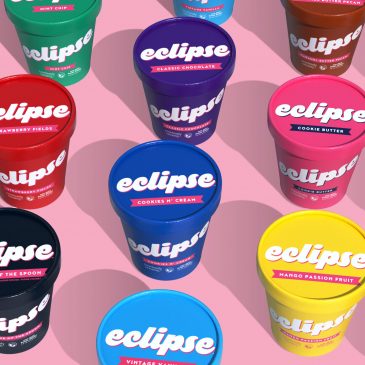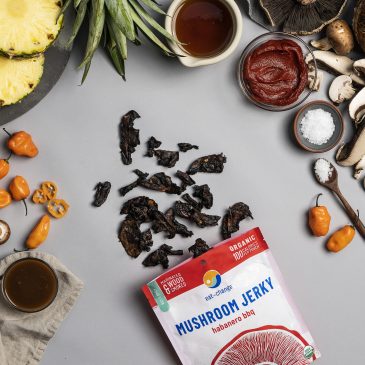Blog
We First 5: Love to Leading Women


All entrepreneurs want to know how to get people to try and to purchase their products. Whenever a brand launches a new product they must inspire consumers to change their behavior. Behavior change is one of the most coveted yet challenging feats for business leaders. A brand doing an excellent job inspiring behavior change is Thistle. The plant-based food delivery subscription service recently secured $10.3 million in a series B fundraising round. They’re expanding their network and building a better world.
“The mission is to help people get and stay healthy while improving the sustainability of our food system via plant-based eating,” Ashwin Cheriyan, co-founder and CEO of Thistle, tells We First.
Cheriyan and his wife, Shiri, started the company in 2013 based on their own desire for convenient, plant-based meals that are good for the planet. Thistle’s CEO worked as a mergers and acquisitions attorney. He started We Go Fair, which rated hotels and restaurants based on their social and environmental performance and he’s an angel investor. Shiri earned a Ph.D. in environmental science and worked at NYU as a climate scientist.
Cheriyan first learned about behavior change at home. “My great grandmother lived to be 102 and almost 40 of her direct descendents are doctors. She literally spawned a hospital.” he joked. Over the dinner table, he learned that the main reasons people die are cardiovascular disease, type 2 diabetes and obesity. They are all linked to diet and exercise.
“The frustrating thing for a physician is that all you can do is give someone medicine to treat their symptoms and recommend that they make a behavioral change. Without fail, that person will go, take the medicine, come back for a follow-up visit and do nothing to change their behavior because changing behavior is hard,” Cheriyan says. “Healthcare is coming down to this notion of behavior change and preventative medicine.”
Ashwin saw his parents go through medical school a second time because their Indian credentials didn’t allow them to practice as doctors when they immigrated to the U.S. “Just seeing that growing up was inspiring. Starting and building something from scratch was something that I always want to do,” he says.
His calling to address our public health crisis combined with Shiri’s commitment to the environment paired perfectly together. “She thought it incredibly odd that all of these people that knew the science weren’t actually telling people that the single biggest impact an individual can have on the planet is to reduce the demand for animals and animal products,” Ashwin says. The Cheriyan’s passion, purpose and path present insights for innovators looking to Lead With We
How Thistle is changing consumer behavior

Dietary choices are so personal. To authentically connect with consumers, it’s important to tell the story in a way that entices and welcomes people. “Most people understand the rational argument for why they need to make the better choice,” Cheriyan says. “Food choices are absolutely emotional. Not only do we have to create a meal that’s predominantly plants, it has to be more delicious and more convenient than other options. People will make the emotional choice.”
Advocates sometimes make the mistake of spinning dogma into what you should and should not eat. It’s important to tell the story in a way that doesn’t alienate people or put them down for choosing whatever food they desire. “Allow people to do that in an easy way. Over time and over a large number of people, you can have a tremendous impact on the planet,” Ashwin says.
“The outcome we’re looking for is, if we can give people absolutely delicious food, where on an emotional level, you will choose that meal over any other meal, you don’t actually have to make a rational argument,” Cheriyan says.
“If that thing that you provide people is plant-based, healthy and free of all processed or artificial ingredients and full of the things that people are typically missing from their lives, then people aren’t sacrificing anything by having that thing that’s delicious,” he says.
Thistle customers are amongst the growing group of consumers using food delivery apps like UberEats, DoorDash and Postmates. “Thistle is just one arrow in a quiver of services that a consumer will ultimately end up using to fulfill the 21 meals that they’ll have in a given week,” Ashwin explains.
The takeaway here is that by helping people purchase more of what they love and doing it in a way that’s better for them and the planet, you can entice them to change their behavior.
Fund raising
When it comes to finding investors, VC circles were already accustomed to direct to consumer food subscription services like Blue Apron, Ashwin says. “These highly capitalized companies in our space had effectively preempted our ability to raise capital. That forced us to focus on product quality and unit economics. Everyone else had all this capital. They were told ‘don’t worry about anything other than top-line revenue, just go grow the business. We’ll figure out all of the costs and the margins later.’ When the investors realized, ‘Oh my God, you have a lot of revenue, but the economics are terrible.’ The musical chairs suddenly stopped.” By focusing on profitability, as well as building a healthy and sustainable world, Thistle has been able to attract investors and reduce risk that if capital dried up they would have a rapid path to profitability.
The pandemic has only increased investor confidence in the space. “People are bullish on delivery services and companies like ours. We still aren’t going to overextend ourselves when it comes to expansion,” the co-founder says.
Barriers to growth and behavior change
Thistle had to build a new business model, which took learning how to essentially run a food delivery restaurant without prior experience. “In the early days, Shiri and I were doing almost every single function. “I was our first delivery driver,” Ashwin says. In fact, for two years I woke up at six in the morning, delivering meals to customers. I loved it because if a customer answered the door, it would give me a chance to ask questions like how was your experience? Why did you choose this? Where did you hear about us? What could we be doing better?”
While people are looking for ways to improve their quality of life, behavior change can present hurdles. “The biggest barriers for people trying to make that change is, people have indicated, ‘no one else in my immediate social circle is making that same change with me. So, I don’t have anyone helping reinforce this behavior that inherently is hard or daunting for me to do.’” Ashwin shares. Thistle works to break that barrier down by being that supportive reinforcement to help people through that difficult change. “Help people really celebrate their wins,” he says.
Building community

One of the most effective ways Thistle has found to break down barriers of consumer adoption is by building community amongst its subscriber group.
Thistle leverages different approaches to build connections between like minded individuals dedicated to healthy and environmentally conscious food choices. Cheriyan says. “We try to engage with our customers as much as possible, whether that is via our Facebook group or other marketing efforts. A lot of it is on how much Shiri and I can do to directly be the voice of the company for our consumers as well.”
Consumers are very smart in trying to figure out if a message is delivered authentically,” he says.
The brand’s commitment to purpose also helps it attract and retain top talent, committed to building the company. “You can train people to do almost anything, but you cannot train them for actual care. You can’t train people on curiosity or enthusiasm. If they can display those traits, you’ll be fine,” Cheriyan says.
Lessons for founders from Thistle’s CEO:
Ashwin Cheriyan’s unusual work history, as well as his ability to raise capital, build a passionate employee base and garner consumer loyalty has cultivated valuable business acumen in the leader. Here are three takeaways from Ashwin that entrepreneurs must heed.
We First 5: Love to Leading Women

Purpose At Work: Is One Small Company Trying To ‘Eclipse’ The Brightest Stars In The Dairy Industry?

Purpose At Work: How Eat The Change Is Cultivating A Sustainable Food Movement

